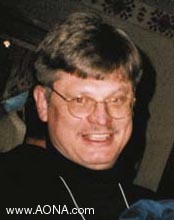
NAMEC Chairman Warren Schubert, M.D.
North American Maxillofacial Education Committee (NAMEC)
by Warren Schubert, M.D., Chairman
The North American Maxillofacial Education Committee completed the first year of the new millennium with its most ambitious calendar of courses. This included seven Basic/Regional programs, two focused "Challenges and Advances Programs" and the Annual Advanced Symposium at Breckenridge, Colorado. The Challenges and Advances Programs included a program on the use of "Distraction Osteogenesis and Orthognathics" in Washington, D.C., chaired by Craig Vander Kolk, and our first AO course dedicated to "Orbital Trauma" in Redondo Beach, California, chaired by Paul Manson.
NAMEC devoted a considerable amount of time to surveying our AO faculty on a national level, in order to determine if we were meeting our educational needs with our Basic/ Regional courses, and to better determine geographic areas of need. We found that our demand is greater than our availability, and we have focused on increasing our number and diversifying our locations for Basic Courses. We have also enforced a new policy requiring at least three co-chairs from the different specialties for all future courses, representing the unique ecumenical nature of our teaching programs.
 NAMEC Chairman Warren Schubert, M.D. |
We now have a mechanism for better coordination of joint meetings, educational programs, and the production of educational videos. For the first time, the Maxillofacial component of AO can truly address the issues and needs of AO global education. A special minimally invasive focus group, facilitated by an AO grant written by Chen Lee, met several times during the year to develop new technologies for the management of subcondylar mandible fractures. Discussions were initiated to apply these technologies to other aspects of maxillofacial surgery as well. Our goal is to have our first AO course to address these topics in San Diego, November 17-18, 2001.
The backbone of our success has been the quality of our courses. NAMEC has devoted much time to improving our courses. All of our courses are attended by an Education Committee member, to monitor the course, assure quality control, and assist the course chairs. NAMEC understands that AO has unique problems regarding maxillofacial teaching, which differ from orthopaedics. The majority of colleagues in our specialties do not have a clear understanding of what AO is. We have included lectures on this topic at all of our Basic Courses. In addition, this year for the first time we had an AO Alumni reception at the national meeting of the three main specialties represented by AO. We continue to experiment with new ways to publicize our courses, by promoting our Challenges and Advances Courses at our Basic Courses, and by improving our web site. NAMEC also spends a considerable amount of time seeking ways to recruit talented young faculty to become involved in our organization, and to encourage and facilitate their efforts to get involved in a leadership role. We have included younger faculty in the coordination of courses in North America and as faculty at international symposia.
2001 promises to be an even more challenging year, with NAMEC continuing its commitment to quality courses, as it expands its role in other aspects of Maxillofacial education. This will include a special Electronic Skills Workshop for AO faculty in Chicago in June, and a retreat which will focus on topics of organizing courses and course curriculum in August, at The Homestead in Virginia. In addition, there has been discussion of ways to facilitate the education of surgeons who are unable to attend courses, with the hopes that this may be accomplished in part through the expanded use of an AO web site, and through various new AO publications.